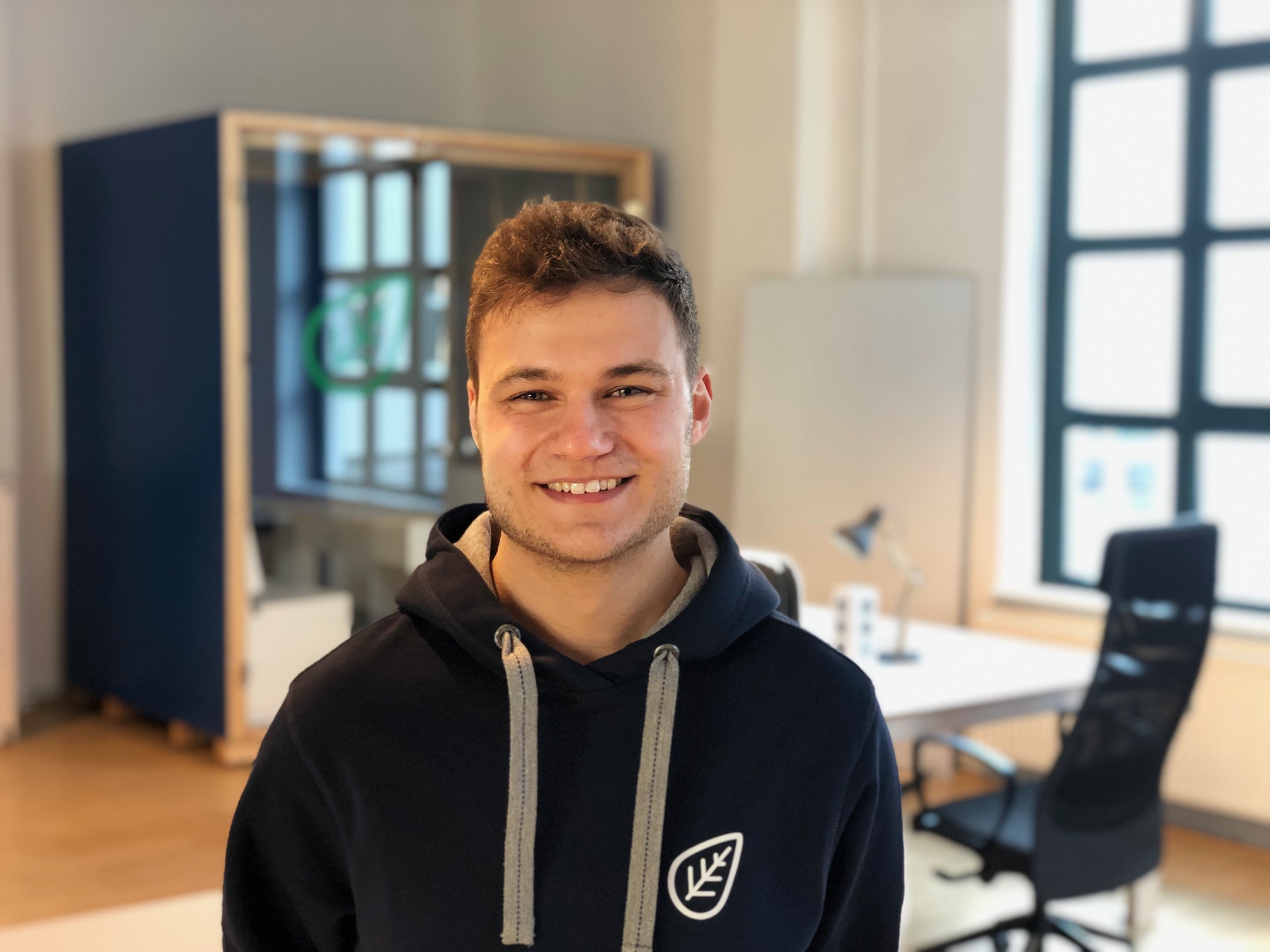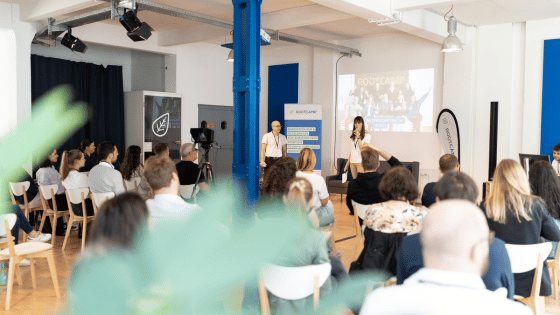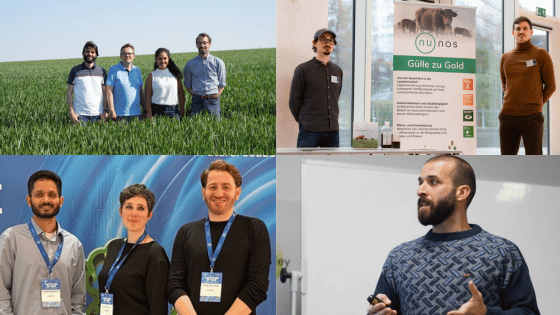Livestock farming, responsible for nearly 14.5% of global greenhouse gas emissions, excessive water consumption, and significant biodiversity loss (as reported by FAO), is driving an urgent need for sustainable alternatives. This necessity has sparked an innovation revolution: alternative protein startups. Across Europe, these bold innovators are utilizing science and technology to create eco-friendly protein sources, whether through cultivated meat, precision fermentation, or plant-based substitutes. By 2050, we will require a 70% increase in food production to feed the world's projected 9.7 billion people. More startups are rising to the occasion, addressing both dietary demands and environmental concerns.
Latest developments in the field of alternative proteins in Europe
Lab-grown meat has already received limited approval in Singapore and the United States, and now it seems that Europe is also taking steps in this direction. Cultivated B, a subsidiary of German food manufacturer Infamily Foods, has made history by becoming the FIRST company in the world to submit an application to the European Food Safety Authority (EFSA) seeking approval for a cell-cultured meat product. According to the company, the developed "meat" is a hybrid sausage product consisting of vegan ingredients as well as cultured meat based on pork. The EFSA inspection is considered to be particularly stringent and time-consuming. The Israeli cellular agriculture company, Aleph Farms, submitted an application for approval in Switzerland to the Swiss Federal Office for Food Safety and Veterinary Affairs (FSVO) back in July of this year, marking the first application for cultured meat in all of Europe.
Alternative proteins are also making waves in the world of investments. Recently, the startup Enough from Scotland secured €40 million in funding to accelerate the production of its mycoprotein product, Abunda. In this article, we shine a spotlight on 10 European startups leading the change towards a sustainable and tasty food future.
BLUU SEAFOOD | cultured fish | Germany
The Berlin-based startup is one of the few companies that focuses on fish alternatives instead of meat alternatives. BLUU SEAFOOD utilizes cell cultivation to replicate their cell lines and create seafood-like products without the need for actual fish. They claim that producing fish cells is less energy-intensive compared to meat cells, as fish cells thrive at room temperature while meat cells require around 37 °C. With their various cell lines, they are capable of producing alternatives to salmon, trout, and carp. Unlike many other startups, BLUU SEAFOOD not only develops formed fish alternatives like fish balls, but also works on producing whole-cut fillets. Production of affordable whole fillets remains one of the biggest challenges for the cultured meat industry.
Cultimate | cell-cultivated fat | Germany
We are happy to have the founders Eugenia and George on board of RootCamp Batch#4. Cultimate specializes in developing cell-cultivated intramuscular fat as an ingredient for alternative meat products. With their B2B business model, Cultimate recognizes that the adoption of cultivated products will not occur all at once. Instead, their cultivated fats can be incorporated into plant-based products to enhance flavor, tenderness, and juiciness, resulting in hybrid products that combine plant-based ingredients with cultivated components.
Meatable | cultured meat | Netherlands
Meatable has achieved significant progress in the cultured meat field. Since 2018, they have secured around €60 million in funding to build their business. According to their website, Meatable is able to cultivate meat products "within a couple of weeks." In May, they reached a significant milestone when their cultivated pork sausage was made available for tasting in Singapore. Although the tasting was limited to a select group of industry professionals and the Singaporean government, it was a remarkable achievement. Currently, cultured meat is subject to strict regulations, and no products have been commercially launched in the European Union. However, Singapore has taken a proactive approach and has already permitted the commercialization of cultivated chicken from GOOD Meat. Similarly, in the United States, UPSIDEFoods and GOOD Meat have received a general "green light," although a few regulatory steps remain.
Standing Ovation | fermentation of cheese | France
Standing Ovation is a Paris-based startup that is passionate about cheese. Founded in 2020, they have developed a unique fermentation technology to create their cheeses. What sets them apart is that all the ingredients used in their cheeses are sourced from sources other than conventional dairy, except for caseins. However, Standing Ovation has ingeniously overcome this challenge by producing caseins through fermentation. Here's how their innovative process works: They cultivate and multiply protein-producing microbes in fermenters, and then extract and purify the cheese proteins. These proteins are then blended with other plant-based ingredients like lipids and sugar, and seamlessly integrated into the traditional cheese production process.
Arkeon | carbon negative ingredients | Austria
The marketing statement from Arkeon may sound too good to be true: "Arkeon turns CO2 into functional, climate-positive ingredients for food." However, their process is indeed remarkable. The Vienna based startup, utilizes microorganisms called archaea in a fermentation process. These microorganisms, among other things, are fed with CO2. The resulting biomass can be used to extract amino acids, which are then offered as ingredients to various players in the value chain. The promising concept of Arkeon has already attracted significant funding, with €10.5 million invested in the startup's development.
Peace of Meat | cultured chicken | Belgium
Peace of Meat is producing cultured chicken without any direct involvement with animals. While many startups in the cultured meat industry utilize animal-derived cells as the basis of their production, Peace of Meat takes a different approach. They begin with a few cells obtained from an egg and then multiply those cells through a fermentation process, supplemented with nutrients, vitamins, oxygen, and sugar.
Grassa | grass proteins | Netherlands
Grassa also part of RootCamp Batch#4 has developed technology and a circularity concept that improves the sustainability of grass fed to ruminants by extracting the surplus proteins from the grass. This grass protein can be used for human and animal consumption and is a perfect alternative for imported soy.
Perfeggt | plant-based eggs | Germany
The Berlin-based startup, founded in 2021, specializes in producing a vegan egg substitute. Their liquid product is available in bottles and is primarily composed of pea proteins, containing 10% protein content and high levels of Omega-3. One of the well-known challenges in the realm of egg substitutes is replicating the taste and texture found in a wide range of conventional egg applications. Perfeggt explicitly states that their product is suitable for various uses, including scrambled eggs, pancakes, carbonara, and more. Currently, they have adopted a B2C approach, exclusively offering their egg substitute to restaurants and hotels.
Moa foodtech | by-product-based ingredients | Spain
Ticking the box of the circular economy, Moa foodtech uses by-products from the food industry to create high-value ingredients suitable for human consumption. This Spanish startup combines biotechnology and artificial intelligence to convert agri-food by-products into a "next-generation protein" with exceptional nutritional value and 100% sustainability. Using a fermentation process, Moa foodtech produces "single-cell proteins" without any allergenic potential. These ingredients offer versatile applications, improving meat substitutes, bread products, and plant-based cheeses, revolutionizing our culinary options with sustainable and nutritious alternatives.
Real Deal Milk | precision fermentation milk | Spain
Real Deal Milk harnesses precision fermentation to produce casein and whey, the key proteins found in milk. Unlike traditional biomass fermentation, where microorganisms themselves are employed as food ingredients, precision fermentation involves programming microorganisms to specifically generate desired proteins for use as ingredients. In the precision fermentation process adopted by Real Deal Milk, yeast cells are equipped with the genetic instructions to synthesize these milk proteins. Once the proteins are successfully produced, they are separated from the yeast cells, resulting in pure milk proteins that are ready for use.
Alternative Proteins: An outlook to the future
As you might have recognized, alternative proteins can be structured into three top categories: 1) Plant-based proteins, 2) Microorganism-based proteins, which encompass various fermentation methods, and 3) Cell-based proteins, which encompass cultured meat. According to the study "Food for Thought: The Protein Transformation" by the impact food investor Blue Horizon and the Boston Consulting Group, the alternative protein landscape is evolving in the sequence mentioned above. Market share and the achievement of price parity compared to animal-derived proteins are progressing in these three phases: they anticipate price parity for plant-based proteins as early as 2023, for microorganism-based proteins in 2025, and for cultured meat in 2032. I'm eager to observe how this sector develops and will frequently visit my local supermarkets, which already offer a wide array of plant-based alternatives, to discover the latest products on the shelves.
What’s next at Innovation Hub RootCamp?
RootCamp is thrilled to announce our partnership with Agritechnica. After three break due to the corona pandemic, Agritechnica is making its highly anticipated return from November 12th to 18th. This event is set to draw more than 400,000 visitors from across the globe.
We are the driving force behind the daily Lunchtime Startup Pitches, where innovative startups in the agricultural industry will showcase their groundbreaking ideas. Join us from 12-2 pm each day as we host these dynamic sessions, providing a platform for promising startups to shine on the world stage.
/rootcamp_logo_white_2022.png?width=2123&height=630&name=rootcamp_logo_white_2022.png)

/RC%20logo%202022.png?width=2325&height=703&name=RC%20logo%202022.png)




